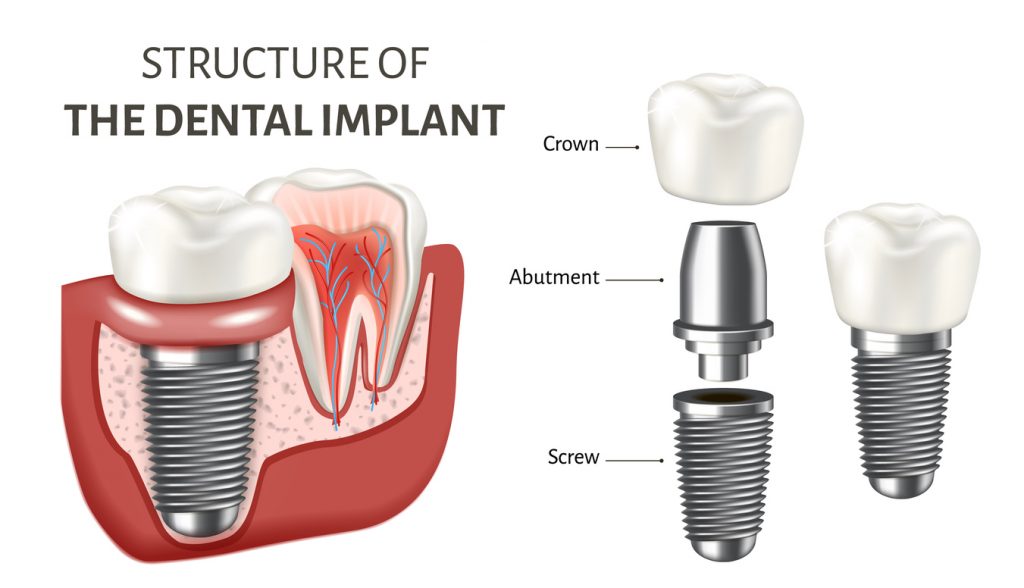When people lose teeth due to injury, illness, or poor oral hygiene, the problem is not just cosmetic. There are some very real dangers associated with missing teeth. Here are just a few of the issues you might have to deal with if you ignore missing teeth. Keep reading to find out how Dr. Scharf can help you head off these consequences with advanced dental implants.
Functionality Issues
Missing teeth can be the source of a range of dental maladies. Replacing them with dental implants is the ideal solution. Contact Us

Eating
Missing teeth can make it hard to chew food, which can affect your diet. In fact, since people with dental problems tend to gravitate towards soft and processed food, ignoring those missing teeth could even impact your weight, which can, in turn, impact your overall health.
Talking
A gappy smile caused by a missing tooth can change the way air passes through your mouth, which can create whistles or lisps when you talk.
Memory
Believe it or not, new research has even shown a link between tooth loss and memory. A 2013 study conducted by the European Journal of Oral Sciences found that older adults who had most of their own teeth were able to recall information about 4% better than their peers who were missing teeth.
Bone Loss
Your teeth are connected to your jawbone with strong ligaments that allow your teeth to move ever-so-slightly as you talk and eat. This constant movement stimulates your jaw bone, which helps keep your bone tissue healthy and strong. When teeth go missing, the jaw bone doesn’t receive this stimulation and it can start to resorb back into your body. In fact, when you lose a tooth, the ridge width of your jawbone can reduce as much as 25% within the first year of loss. Traditional braces do nothing to protect against this bone loss.
Impact On Future Restorations
When your jawbone shrinks, it can make future restorations more difficult. For example, if you wait to have dental implants placed, you might need to receive bone grafts to strengthen the area prior to your implants.
Changing Face Shape
Losing bone mass in your jaw can also change your face shape. When teeth go missing, it can cause the lower half of your face to appear slightly caved-in, making you look much older.
Tooth Alignment
When a tooth goes missing, your teeth try to compensate for the missing area by spreading out. This means that a single missing tooth can cause the rest of your teeth to fall out of alignment and look crooked and gappy.
Self-Confidence Problems
The way that you carry yourself says a lot about your character. If you walk into a business meeting smiling and confident, you might be more likely to close that business deal, impress that new client, or establish authority amongst your peers. Unfortunately, the inverse might be true if you are missing teeth. A damaged smile might prompt you to cover your mouth when you talk or avoid smiling, which can make you appear unconfident or unapproachable.
The Solution: Dental Implants
Fortunately, there is an easy way to avoid all of the issues caused by missing teeth: dental implants. Dental implants are anchors for prosthetic teeth that fuse directly into your jawbone. In addition to providing the stimulation that your jaw needs to stay strong and healthy, dental implants look, function, and feel completely natural. Implants are often used during smile makeovers to transform patients’ smiles. A single dental implant is indistinguishable from your existing teeth. A full arch restoration can be made to give you a smile that works and looks as well or better than it did when you had all your natural teeth.
Many dentists offer dental implants now, but it’s important to entrust these restorations to a periodontist who specializes in the tissues around your teeth and has a track record of successful implant placement. Dr. David Scharf is a Board Certified Periodontist and has placed over 10,000 implants during his career. If you think that dental implants are something that could benefit you, contact us today. This treatment is easier than many patients expect. Read answers to frequently asked questions about dental implants.

